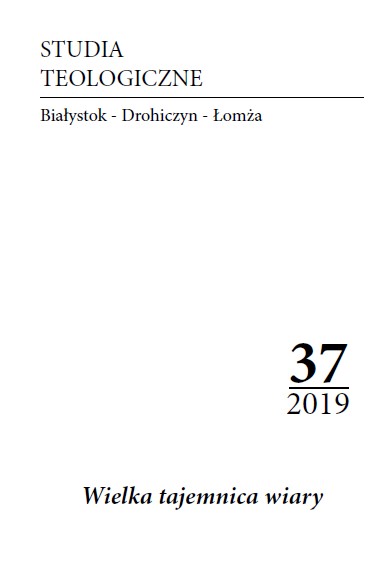ŚWIADECTWO JAKO ZNAK OBJAWIENIA I MOTYW WIARYGODNOŚCI CHRZEŚCIJAŃSKIEJ. PERSPEKTYWA FUNDAMENTALNOTEOLOGICZNA
Testimony as a sign of Revelation and reason of Christian credibility
Author(s): Tadeusz SiewkoSubject(s): Christian Theology and Religion, Philosophy of Religion
Published by: Kuria Metropolitalna Białostocka
Keywords: testimony; witness; martyr; martyrdom;
Summary/Abstract: Testimony is a key concept of fundamental theology, because this science is based not on experience but on the testimony of people who have met God. In the New Testament, the first witness who gives testimony of God as his father is Jesus Christ, who performs self-revelation to the world. According to John the Apostle, the Apostles are the main witnesses of the Son of God, because they personally met the Lord and received His teaching. Saint Paul defines a witness as a person who met the Savior through faith and accepted His teaching. The task of Christ’s disciples is to pass on this meeting. The ancient philosophy has given the basis for understanding testimony as martyrdom, in which the philosopher witnessed the truth about the world of ideas that he discovered. The philosopher not only delivered his views to others, but also lived according to this exemplar. Socrates is an example of a teacher who was faithful to his views up to the sacrifice of his own life. Philosophy becomes for the ancients the skill of proper life, that is why the martyr is the one who lives in the right way until death. Christian martyrs thus testify that they are convinced of their resurrection. Becoming a martyr does not depend on the type of death suffered, but mostly on the idea of imitating Christ in carrying the cross.
Journal: Studia Teologiczne Białystok Drohiczyn Łomża
- Issue Year: 37/2019
- Issue No: 1
- Page Range: 7-18
- Page Count: 12
- Language: Polish

